Evidence Based Medicine
silversword
15 years ago
Related Stories
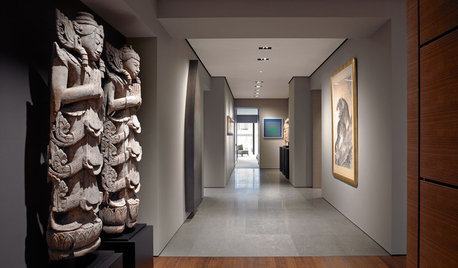
DESIGN DETAILSDesign Workshop: The Modern Wall Base, 4 Ways
Do you really need baseboards? Contemporary design provides minimalist alternatives to the common intersection of floor and wall
Full Story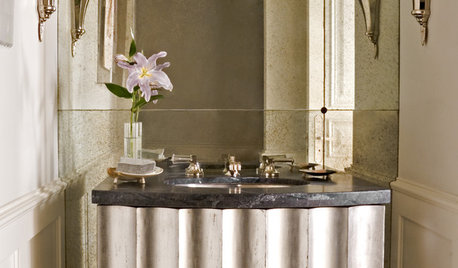

BATHROOM DESIGNRoom Tour: Modern Country Bathroom
Contemporary fixtures and tiles provide a versatile base for fun vintage details
Full Story
MODERN HOMESHouzz Tour: Earthy Decor Adds Warmth to a Modern Home
Nature-based colors and rustic elements bring a cozier feeling to a minimalist house in Southern California
Full Story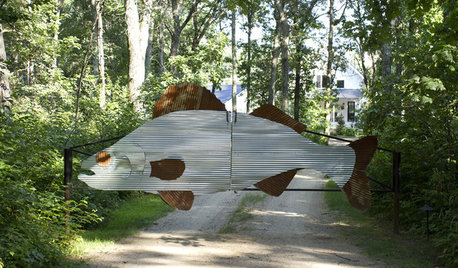
FUN HOUZZ11 Ways to Have More Fun at Home
Every house needs a touch of humor — a funny sign or an accessory that always makes you smile. Here’s where to begin
Full Story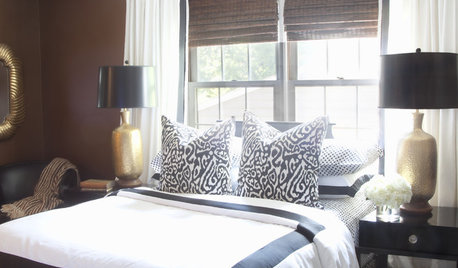
BEDROOMSRoom Tour: Fall in Love with This Vintage-Style Bedroom
Refurbished finds, custom touches and the right amount of gloss make a bedroom shine
Full Story
DECORATING GUIDESDecorate With Intention: A Crash Course in Feng Shui
Designing according to ancient principles may do more than put your home in balance — it may enhance your life
Full Story
EVENTSOn Show: Weird, Wondrous Science Meets Design
Houses grown, not built. Power-generating soil. And snail poop that ... well, see for yourself in our coverage of a new Rotterdam exhibit
Full Story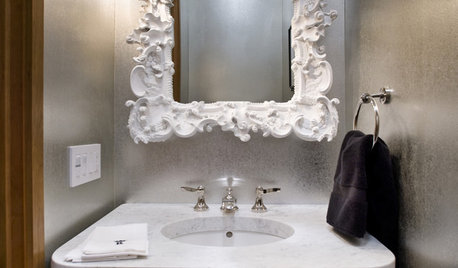
FUN HOUZZHere's Looking at You: A Mirror Personality Quiz
What does your bathroom mirror preference say about you? We offer some speculations to go with 11 very different mirror styles
Full Story
HOME TECHComing Soon: Furniture That Charges Your Phone
Countertops, tables and home appliances with wireless charging capability mean less clutter — and zero effort powering your phone
Full Story





rusty_blackhaw
brendan_of_bonsai
Related Professionals
Rancho Palos Verdes Landscape Architects & Landscape Designers · Alexandria Landscape Contractors · Burlington Landscape Contractors · Goodyear Landscape Contractors · Beverly Hills Landscape Contractors · Chattanooga Landscape Contractors · East Chicago Landscape Contractors · Galt Landscape Contractors · North Haven Landscape Contractors · Centreville Carpenters · Fair Oaks Carpenters · Happy Valley Carpenters · Levittown Carpenters · Charleston Roofing & Gutters · Washington Roofing & GutterssilverswordOriginal Author
rusty_blackhaw
silverswordOriginal Author
rusty_blackhaw
maifleur01
luckygal
eibren
rusty_blackhaw
goshen
rusty_blackhaw
Ina Plassa_travis
silverswordOriginal Author
goshen
rusty_blackhaw
silverswordOriginal Author
rusty_blackhaw
silverswordOriginal Author
rusty_blackhaw
eibren
rusty_blackhaw
dral
brendan_of_bonsai
rusty_blackhaw
apollog
silverswordOriginal Author
rusty_blackhaw
brendan_of_bonsai
dral
rusty_blackhaw
rusty_blackhaw
dral
rusty_blackhaw
gringojay
rusty_blackhaw
rusty_blackhaw
rusty_blackhaw
givelittle_getlots
rusty_blackhaw
givelittle_getlots
silverswordOriginal Author
rusty_blackhaw
silverswordOriginal Author
brendan_of_bonsai
silverswordOriginal Author
rusty_blackhaw
silverswordOriginal Author
gringojay
silverswordOriginal Author